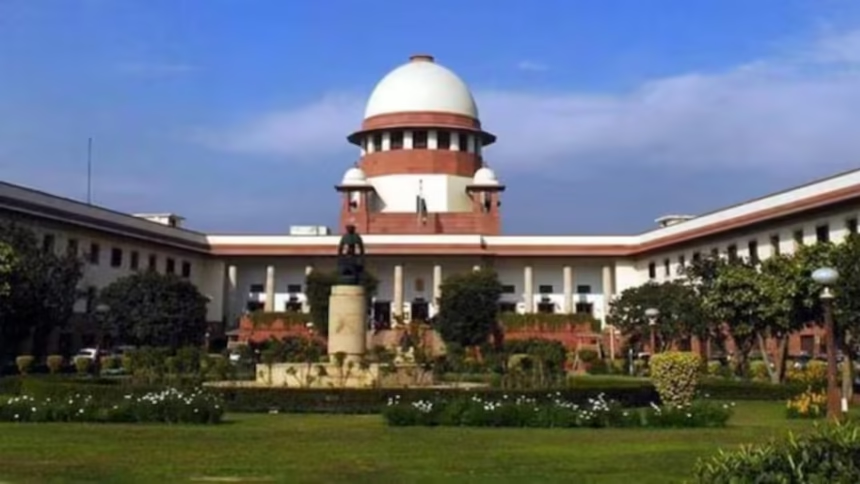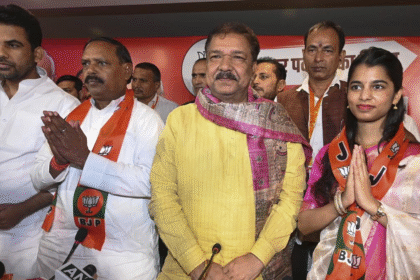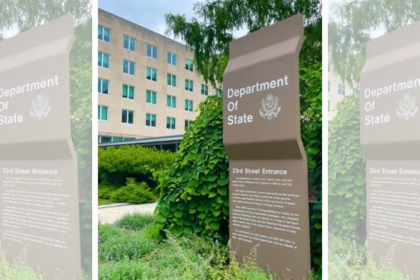Supreme Court to Hear Presidential Reference from August 19 as Tamil Nadu and Kerala Raise Objections
New Delhi: The Supreme Court on Tuesday (July 29) said that the Presidential Reference on deadlines for the president and governors to clear Bills passed by state legislatures will be heard from August 19.
The court’s ruling comes a day after the Tamil Nadu and Kerala governments questioned the maintainability of the reference, saying that it was an “appeal in disguise” and should be “returned unanswered in whole”.
A constitution bench comprising Chief Justice of India (CJI) B.R. Gavai and Justices Surya Kant, Vikram Nath, P.S. Narasimha and Atul S. Chandurkar asked all parties to submit their written submissions by August 12.
The court said that it will hear the parties opposing the reference first, followed by those in favour.
“Let parties file written submissions on or before August 12. For Nodal counsels for Union and all other parties, we appoint Misha Rohatgi for the parties who are opposing the reference. We will start hearing on August 19,” the court was quoted by Bar and Bench as saying.
Senior advocate K.K. Venugopal, appearing for the state of Kerala, and senior advocate Kapil Sibal questioned the maintainability of the reference.
“There are grounds for it to be returned and we question the maintainability,” Venugopal said.
“We will hear parties on maintainability first. The ones opposing shall be heard on 19, 20, 21 and 26 August. Supporting the reference will be heard on August 20, Sept 2, 3 and 9. [The] time schedule will be strictly followed. Let parties complete arguments as prescribed,” the court said.
President Droupadi Murmu had a sent a 14-point reference to the Supreme Court for an opinion on some of its own powers in May.
The reference concerns the apex court’s landmark judgment in State of Tamil Nadu vs Governor of Tamil Nadu, in which the Supreme Court set timelines for the president to act as per Article 201 of the constitution on the Bills which a governor has reserved for her assent. The Supreme Court had said that Tamil Nadu governor R.N. Ravi’s move to reserve 10 Bills for the president’s assent was illegal.
Tamil Nadu and Kerala oppose the Presidential Reference
The states of Tamil Nadu and Kerala moved the top court on Monday (July 28) seeking the dismissal of the Presidential Reference which they claim is an appeal in disguise and meant to make the Supreme Court review its own April 8 judgement in the Tamil Nadu governor’s case.
The states argued that the Constitution does not allow the Supreme Court to sit in appeal of its own judgments. Further, the President cannot confer appellate jurisdiction to the court through a Presidential Reference, they said.
The states have called the reference “misleading” and replete with “suppressed facts”, the Hindu reported.
Kerala, represented by Venugopal and C.K. Sasi, argued that the president could refer a question of law only if it has not already been decided by the court. “When the Supreme Court in its adjudicatory jurisdiction pronounces its authoritative opinion on a question of law, it cannot be said that there is any doubt about the question of law,” they said.
Referring to the 1993 Presidential Reference in the Cauvery Water Disputes Tribunal, Kerala submitted that the powers of the governor and the president had been subject to three separate judgements in cases filed by Telangana, Punjab and Tamil Nadu.
The states pointed out that the April 8 judgement in the Tamil Nadu governor’s case had already addressed the issues raised in the Presidential Reference submitted in May.
If the Union government wanted to challenge the judgement, it should have filed a review or a curative petition in the Supreme Court, the state of Kerala argued. Since the judgement was not challenged, it was established as settled law, the state said.
“The Union of India has not filed any review or curative petition against the judgment delivered by the court in the Tamil Nadu case, and has thus accepted the judgment…The judgment, having not been assailed or set aside in any validly constituted proceedings, has attained finality and is binding on all concerned under Article 141, and cannot be challenged obliquely in collateral proceedings such as in the instant reference. The President and the Council of Ministers have to act in aid of the Supreme Court under Article 144 of the Constitution,” Kerala submitted.








